牛津译林版八年级上册Unit 8 Natural disasters Grammar past Continuous tense 课件(共41张PPT)
文档属性
| 名称 | 牛津译林版八年级上册Unit 8 Natural disasters Grammar past Continuous tense 课件(共41张PPT) |
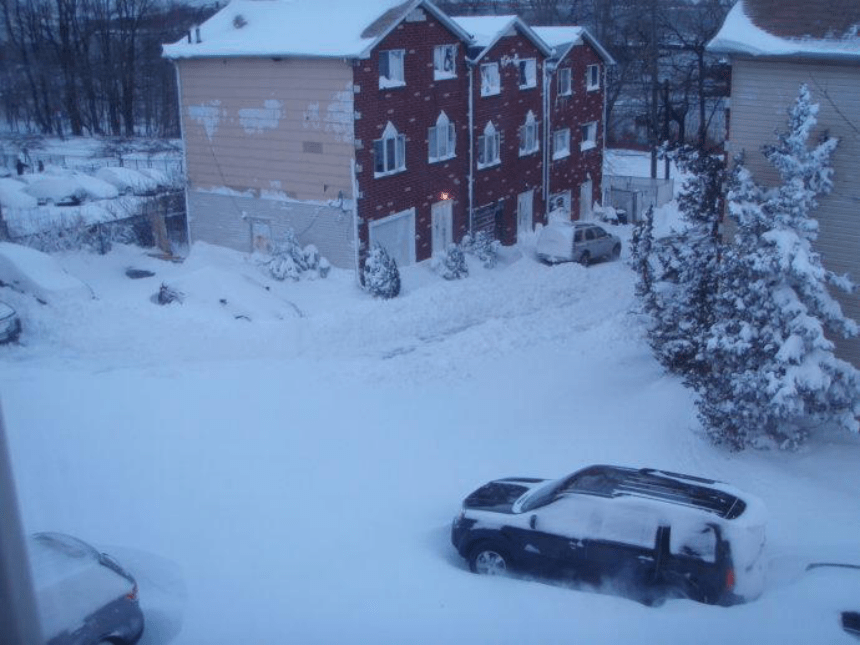
|
|
| 格式 | ppt | ||
| 文件大小 | 13.7MB | ||
| 资源类型 | 教案 | ||
| 版本资源 | 牛津译林版 | ||
| 科目 | 英语 | ||
| 更新时间 | 2022-12-26 00:00:00 | ||
图片预览

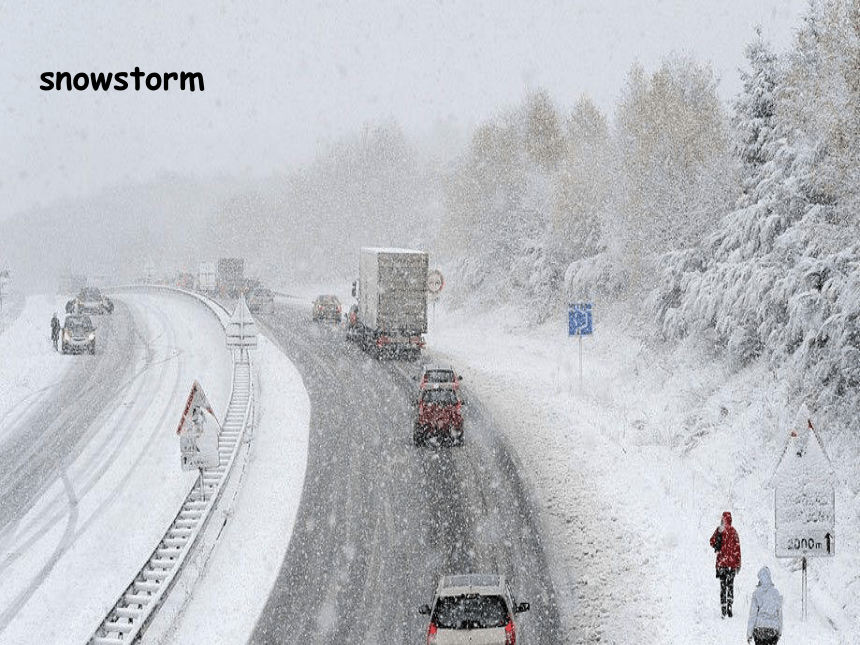
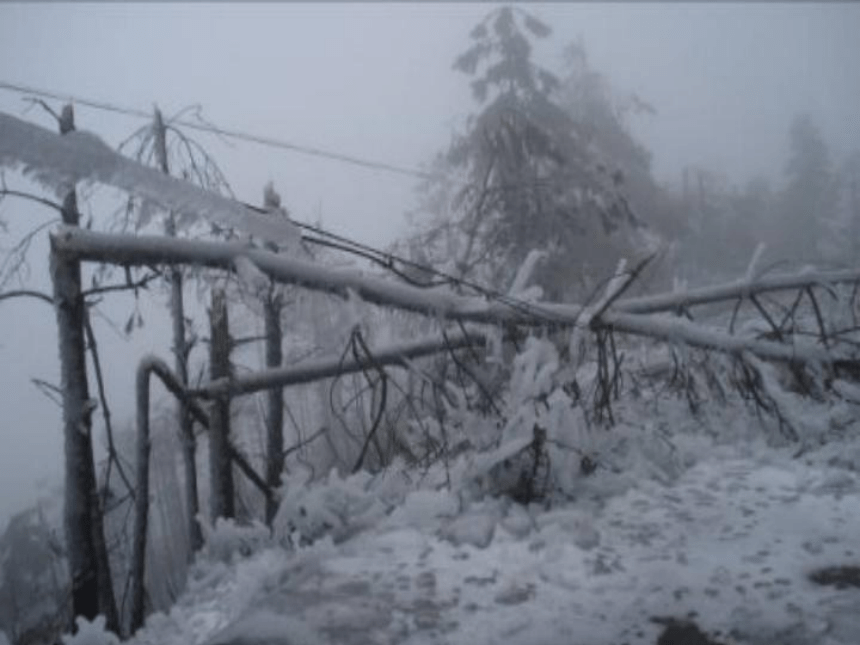
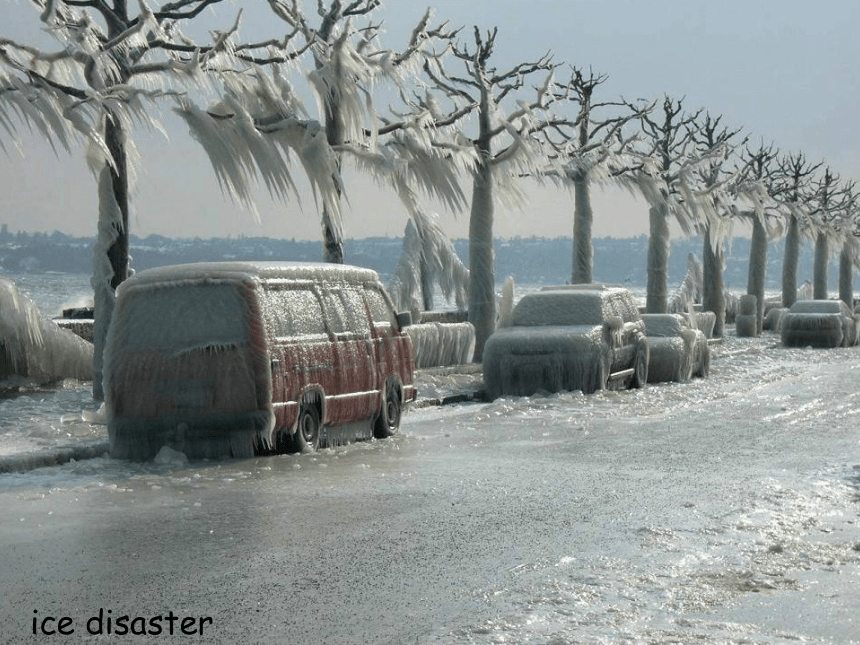
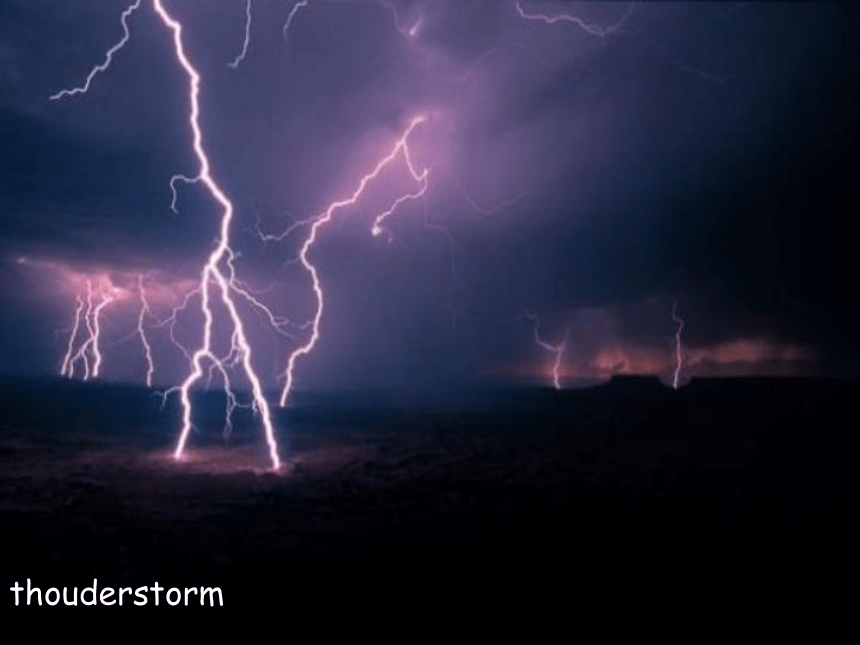
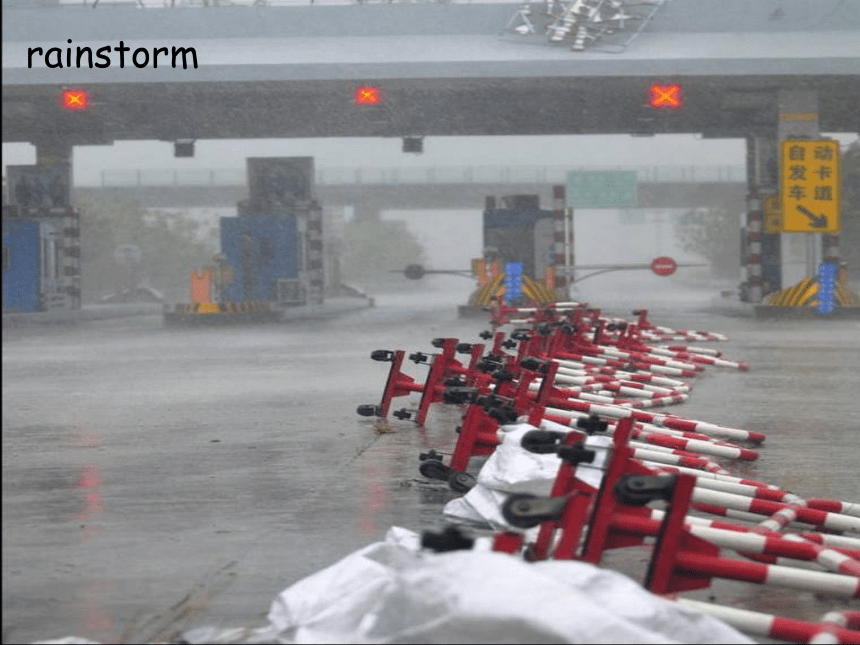
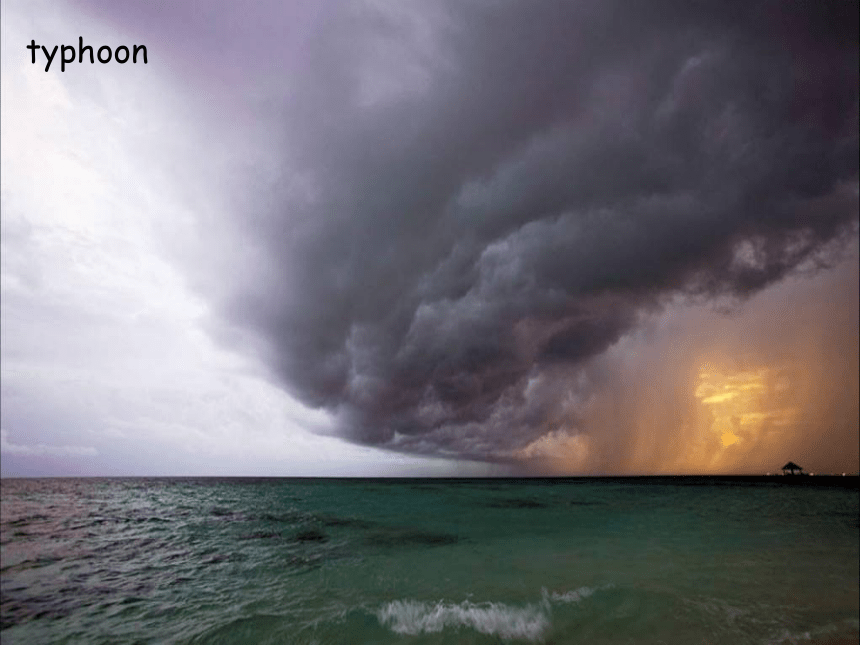
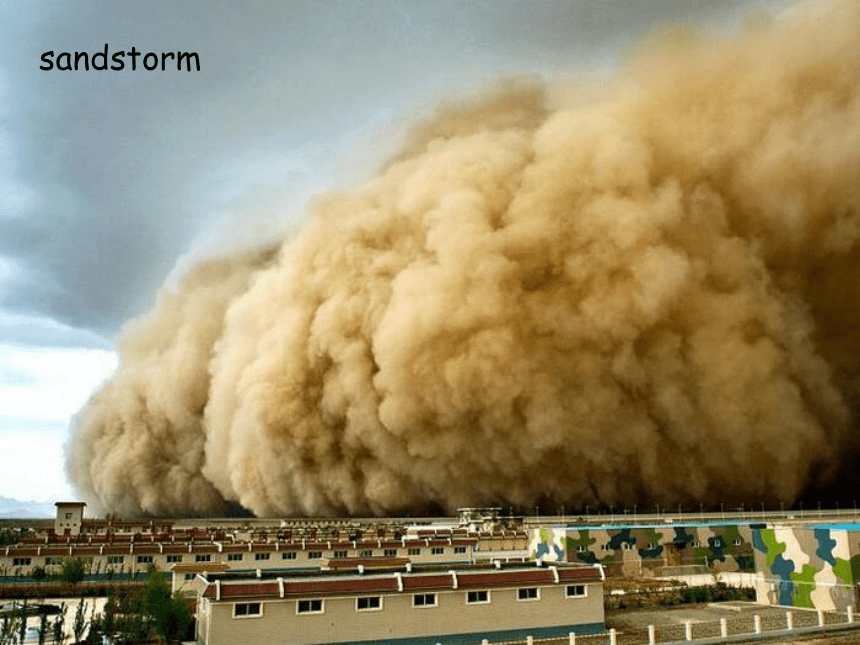
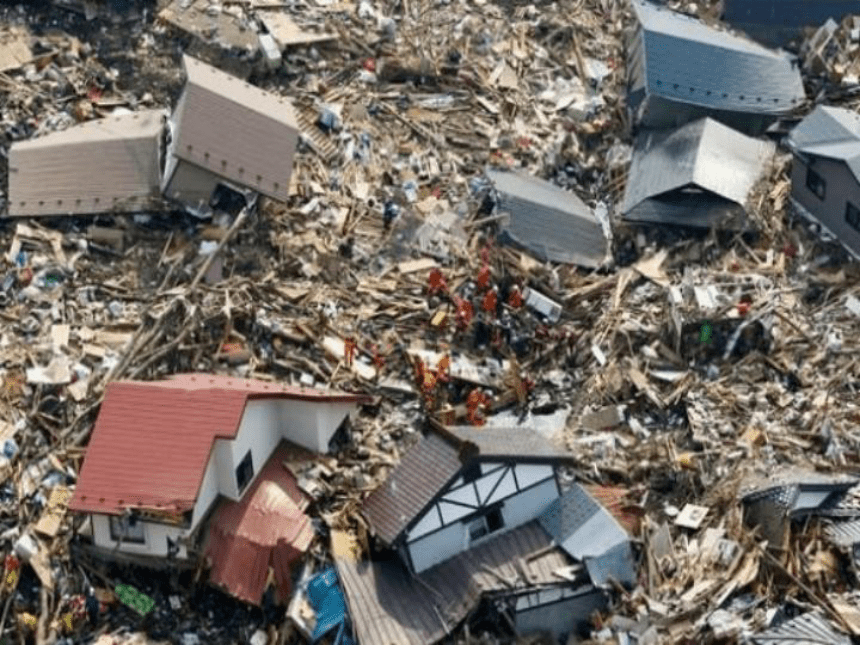
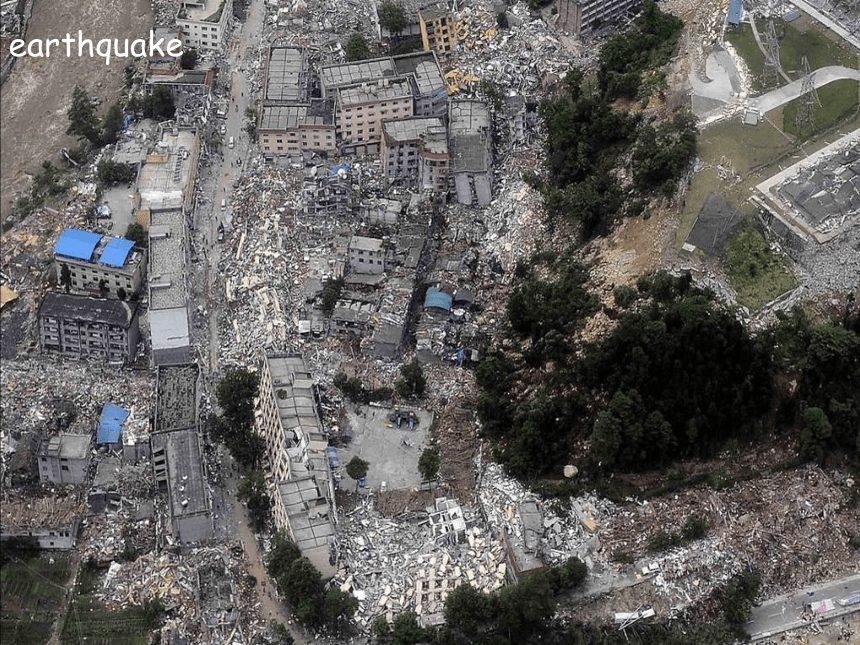
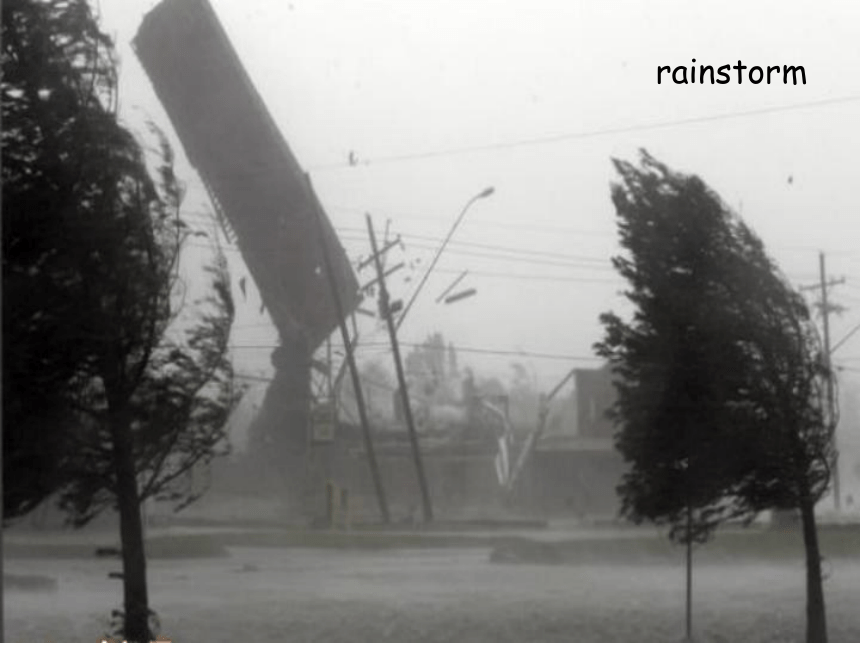
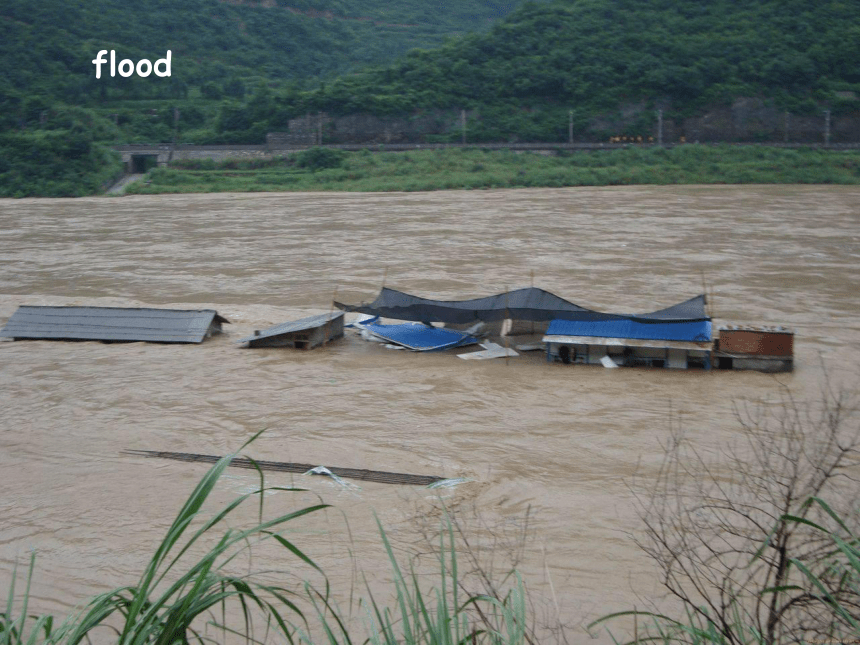
文档简介
(共41张PPT)
snowstorm
ice disaster
thouderstorm
rainstorm
typhoon
sandstorm
earthquake
rainstorm
flood
Mama Jenny
Jack
They (live)in a small town in America.
The town is suffering from a flood—a natural disaster.
are
living
Present continuous tense
am/is/are +v-ing
Peter arrived there to see…
The small town is very beautiful. But there was a flood. Mama Jenny and Jack lost their home. They were staying in a big house while it was raining heavily at 7a.m.last Monday. On the first day, My friend Peter arrived there. Many people were crying at that moment. They weren’t living happily at that time. Peter decided to help them.
Mr wu
Where were Mama Jenny and Jack at 7 a.m. last Monday
moments
The small town is very beautiful. But there was a flood. Mama Jenny and Jack lost their home. They were staying in a big house while it was raining heavily at 7a.m.last Monday. On the first day, My friend Peter arrived there. Many people were crying at that moment. They weren’t living happily at that time. Peter decided to help them.
Mr wu
What were many people doing at that moment
moments
The small town is very beautiful. But there was a flood. Mama Jenny and Jack lost their home. They were staying in a big house while it was raining heavily at 7a.m.last Monday. On the first day, My friend Peter arrived there. Many people were crying at that moment. They weren’t living happily at that time. Peter decided to help them.
Mr wu
Were they living happily at that time
moments
◆They were staying in a big house
at 7a.m.last Monday.
◆ Many people were crying at that moment.
◆ They weren’t living happily at that time.
It is raining heavily now.
They are living in a small town in America.
We use present continuous tense to talk about the things that are happening now.
We use ( ) continuous tense to talk about the things that were happening at a particular(详细的,特别的) time ( ).
past
in the past
◆They were staying in a big house
at 7a.m.last Monday.
◆ Many people were crying at that moment.
◆ They weren’t living happily at that time.
Past continuous tense: ____ /____ + _______
positive sentences(肯定句)
______/______ + _______.
negative sentences(否定句)
was
were
V-ing
wasn’t
weren’t
V-ing
We use ____after I/He/She/It .
We use _____ after You/We/They ...
was
were
The small town is very beautiful. But there was a flood last week. Mama Jenny and Joel lost their home. They were staying in a big house while it was raining heavily at 7a.m.last Monday.On the first day, Peter arrived there. Many people were crying at that moment. They weren’t living happily at that time. Peter decided to help them.
We use past continuous tense when there is a phrase like_____________________, _______________, ___________________,
_______________________________ . ,
_________________________________________________
and so on to talk about the things that were happening in the past.
at 7a.m. last Monday
at that time
at that moment
this time last Monday
from 7 p.m to 9 p.m. yesterday
I heard there was a snowstorm at about seven this morning.
I (read) the newspaper then.
What you (do) ,Simon @Simon
I (have) breakfast.
What about you, Millie @Millie
I (walk) to the bus stop. Sandy, I saw you and your parents standing on the side of the road. you (wait) for a taxi @Sandy
Yes. My dad’s car broke down because of the cold weather. He (ring)someone to come and help when you saw us. @Millie
was reading
were
doing
was having
was walking
waiting
Were
was ringing
break down
Mr Wubing
I________(arrive) at the small village at 6 a.m. last Monday.It ________________(rain) from 6 a.m.to 8p.m. last Monday. The house ________________ (fall) down because of the heavy rain at 9 a.m. that day.
People __________________ (stay) in
a church this time last Monday.
They _________________ (cry) at that
moment. They____________________
(not smile) because they lost their
homes.
was raining
was falling
were crying
weren’t smiling
were staying
arrived
a short action
a long action
Peter arrived there to see…
Peter decided to help…
moments
Millie: Was Peter repairing the house at that time
Simon: Was the glass falling down
Sandy: Were many people reporting Peter’s story
Simon: Were people living happily at that moment
moments
Millie: Was Peter repairing the house at that time
Simon: Was the glass falling down
Sandy: Were many people reporting Peter’s story
Simon: Were people living happily at that moment
Mr Wu: No, they were not.
Mr Wu: Yes, it was.
Mr Wu: Yes, they were .
Mr Wu: Yes, he was.
Past continuous tense in ‘Yes/No’ questions
(一般疑问句):
____ /_____ + _______ + ______?
Yes, subject +____ /_____;
No, subject+______/_______.
Was
Were
subject
V-ing
was
were
wasn’t
weren’t
Peter arrived there to see…
Peter decided to help…
Peter brought a miracle…
(奇迹)
While People (cry),
they (stay)in the big house.
moments
were crying
were staying
When two ____ actions went on
at the same time, we use ‘_____’ to join them.
long
while
during the time that
past continuous tense
Many people arrived.
It was raining heavily.
When/While/As it was raining heavily ,
many people arrived.
(a shorter action)
(a longer action)
moments
simple past tense
Some reporters came.
Peter was helping people
rebuild their homes.
When some reporters came, Peter was
helping people rebuild their homes.
(a shorter action)
(a longer action)
moments
(When a shorter action happened at the same time as a longer action, we can use ‘when’ or ‘while’ or ‘as’
to join the two actions.)
We use ‘ while ’ ‘ when’ ‘ as’ before the _______ action, or we use ‘______’ before the shorter action.
We use the__________________ for the longer action, and the_________________
for the shorter action. (simple past tense/
past continuous tense)
longer
when
simple past tense
past continuous tense
Please help me describe(描述)
the pictures by using ‘when’/ ‘while’ /‘as’ .
1. It was raining heavily.
The pole(杆子) fell down.
3. The woman was reporting the news.
Peter was helping others.
2. It was raining heavily.
Many people were carrying boxes.
4. The man was watching the news.
Someone came into the shop.
Many people were talking about Peter .
What do you think of Peter
What can we learn from him
I think he is helpful, kind, brave,
strong-willed(意志坚定的)…
We should never give up when we have problems,
try our best to help people in need,
be brave when we have trouble,
…
A reporter is asking Peter about
his story.
Help them to make up a dialogue in
pairs.
R: I know you stayed in the small town for
3 days. What did you see on the first day
P: It when I … People
So I decided to help them.
R: What were you doing on the second day
P: I at that time/… while/when …
R: You moved(感动) many people so that(以至)
they went there to help too. What were
they doing on the third day
P: They / at that moment/…
R: You are so … I think…
P: Thank you./…
(R——the reporter; P——Peter)
Peter’s story tells us that one person can
also change the world around us if he is
kind, helpful and strong-willed. Whatever
(无论什么) problems we have, we should
take actions actively instead of (而不是)
waiting passively(被动地).
snowstorm
ice disaster
thouderstorm
rainstorm
typhoon
sandstorm
earthquake
rainstorm
flood
Mama Jenny
Jack
They (live)in a small town in America.
The town is suffering from a flood—a natural disaster.
are
living
Present continuous tense
am/is/are +v-ing
Peter arrived there to see…
The small town is very beautiful. But there was a flood. Mama Jenny and Jack lost their home. They were staying in a big house while it was raining heavily at 7a.m.last Monday. On the first day, My friend Peter arrived there. Many people were crying at that moment. They weren’t living happily at that time. Peter decided to help them.
Mr wu
Where were Mama Jenny and Jack at 7 a.m. last Monday
moments
The small town is very beautiful. But there was a flood. Mama Jenny and Jack lost their home. They were staying in a big house while it was raining heavily at 7a.m.last Monday. On the first day, My friend Peter arrived there. Many people were crying at that moment. They weren’t living happily at that time. Peter decided to help them.
Mr wu
What were many people doing at that moment
moments
The small town is very beautiful. But there was a flood. Mama Jenny and Jack lost their home. They were staying in a big house while it was raining heavily at 7a.m.last Monday. On the first day, My friend Peter arrived there. Many people were crying at that moment. They weren’t living happily at that time. Peter decided to help them.
Mr wu
Were they living happily at that time
moments
◆They were staying in a big house
at 7a.m.last Monday.
◆ Many people were crying at that moment.
◆ They weren’t living happily at that time.
It is raining heavily now.
They are living in a small town in America.
We use present continuous tense to talk about the things that are happening now.
We use ( ) continuous tense to talk about the things that were happening at a particular(详细的,特别的) time ( ).
past
in the past
◆They were staying in a big house
at 7a.m.last Monday.
◆ Many people were crying at that moment.
◆ They weren’t living happily at that time.
Past continuous tense: ____ /____ + _______
positive sentences(肯定句)
______/______ + _______.
negative sentences(否定句)
was
were
V-ing
wasn’t
weren’t
V-ing
We use ____after I/He/She/It .
We use _____ after You/We/They ...
was
were
The small town is very beautiful. But there was a flood last week. Mama Jenny and Joel lost their home. They were staying in a big house while it was raining heavily at 7a.m.last Monday.On the first day, Peter arrived there. Many people were crying at that moment. They weren’t living happily at that time. Peter decided to help them.
We use past continuous tense when there is a phrase like_____________________, _______________, ___________________,
_______________________________ . ,
_________________________________________________
and so on to talk about the things that were happening in the past.
at 7a.m. last Monday
at that time
at that moment
this time last Monday
from 7 p.m to 9 p.m. yesterday
I heard there was a snowstorm at about seven this morning.
I (read) the newspaper then.
What you (do) ,Simon @Simon
I (have) breakfast.
What about you, Millie @Millie
I (walk) to the bus stop. Sandy, I saw you and your parents standing on the side of the road. you (wait) for a taxi @Sandy
Yes. My dad’s car broke down because of the cold weather. He (ring)someone to come and help when you saw us. @Millie
was reading
were
doing
was having
was walking
waiting
Were
was ringing
break down
Mr Wubing
I________(arrive) at the small village at 6 a.m. last Monday.It ________________(rain) from 6 a.m.to 8p.m. last Monday. The house ________________ (fall) down because of the heavy rain at 9 a.m. that day.
People __________________ (stay) in
a church this time last Monday.
They _________________ (cry) at that
moment. They____________________
(not smile) because they lost their
homes.
was raining
was falling
were crying
weren’t smiling
were staying
arrived
a short action
a long action
Peter arrived there to see…
Peter decided to help…
moments
Millie: Was Peter repairing the house at that time
Simon: Was the glass falling down
Sandy: Were many people reporting Peter’s story
Simon: Were people living happily at that moment
moments
Millie: Was Peter repairing the house at that time
Simon: Was the glass falling down
Sandy: Were many people reporting Peter’s story
Simon: Were people living happily at that moment
Mr Wu: No, they were not.
Mr Wu: Yes, it was.
Mr Wu: Yes, they were .
Mr Wu: Yes, he was.
Past continuous tense in ‘Yes/No’ questions
(一般疑问句):
____ /_____ + _______ + ______?
Yes, subject +____ /_____;
No, subject+______/_______.
Was
Were
subject
V-ing
was
were
wasn’t
weren’t
Peter arrived there to see…
Peter decided to help…
Peter brought a miracle…
(奇迹)
While People (cry),
they (stay)in the big house.
moments
were crying
were staying
When two ____ actions went on
at the same time, we use ‘_____’ to join them.
long
while
during the time that
past continuous tense
Many people arrived.
It was raining heavily.
When/While/As it was raining heavily ,
many people arrived.
(a shorter action)
(a longer action)
moments
simple past tense
Some reporters came.
Peter was helping people
rebuild their homes.
When some reporters came, Peter was
helping people rebuild their homes.
(a shorter action)
(a longer action)
moments
(When a shorter action happened at the same time as a longer action, we can use ‘when’ or ‘while’ or ‘as’
to join the two actions.)
We use ‘ while ’ ‘ when’ ‘ as’ before the _______ action, or we use ‘______’ before the shorter action.
We use the__________________ for the longer action, and the_________________
for the shorter action. (simple past tense/
past continuous tense)
longer
when
simple past tense
past continuous tense
Please help me describe(描述)
the pictures by using ‘when’/ ‘while’ /‘as’ .
1. It was raining heavily.
The pole(杆子) fell down.
3. The woman was reporting the news.
Peter was helping others.
2. It was raining heavily.
Many people were carrying boxes.
4. The man was watching the news.
Someone came into the shop.
Many people were talking about Peter .
What do you think of Peter
What can we learn from him
I think he is helpful, kind, brave,
strong-willed(意志坚定的)…
We should never give up when we have problems,
try our best to help people in need,
be brave when we have trouble,
…
A reporter is asking Peter about
his story.
Help them to make up a dialogue in
pairs.
R: I know you stayed in the small town for
3 days. What did you see on the first day
P: It when I … People
So I decided to help them.
R: What were you doing on the second day
P: I at that time/… while/when …
R: You moved(感动) many people so that(以至)
they went there to help too. What were
they doing on the third day
P: They / at that moment/…
R: You are so … I think…
P: Thank you./…
(R——the reporter; P——Peter)
Peter’s story tells us that one person can
also change the world around us if he is
kind, helpful and strong-willed. Whatever
(无论什么) problems we have, we should
take actions actively instead of (而不是)
waiting passively(被动地).
